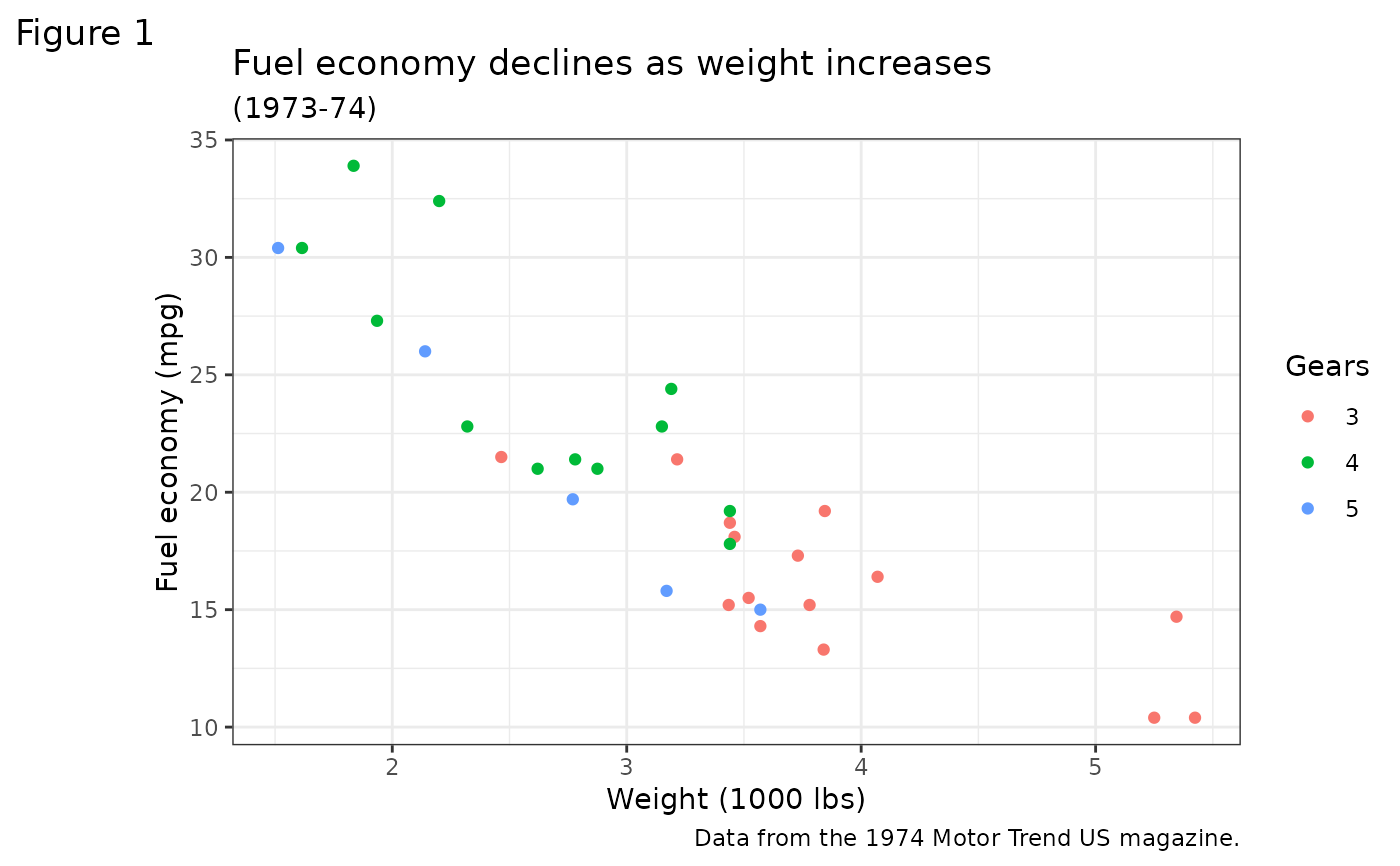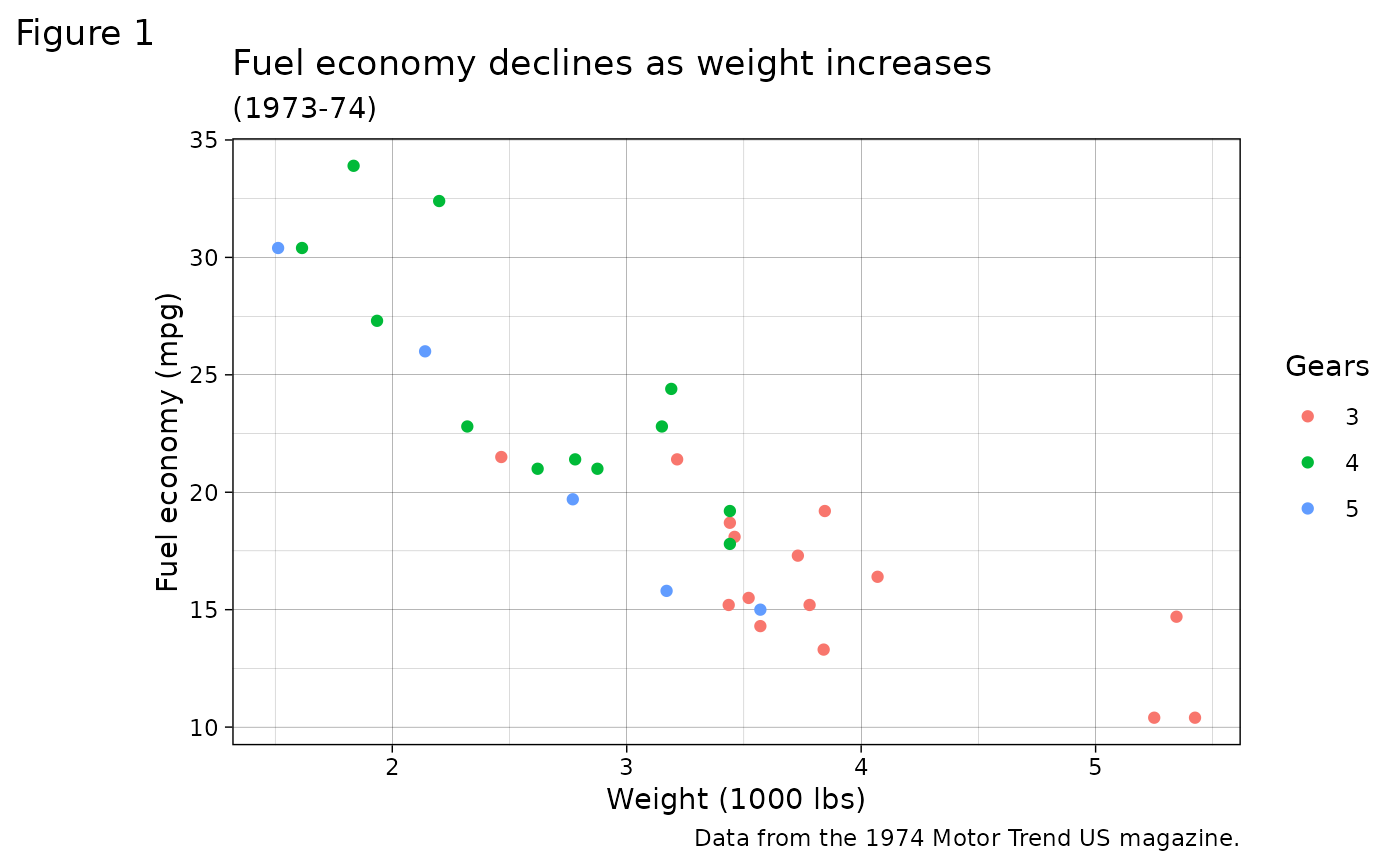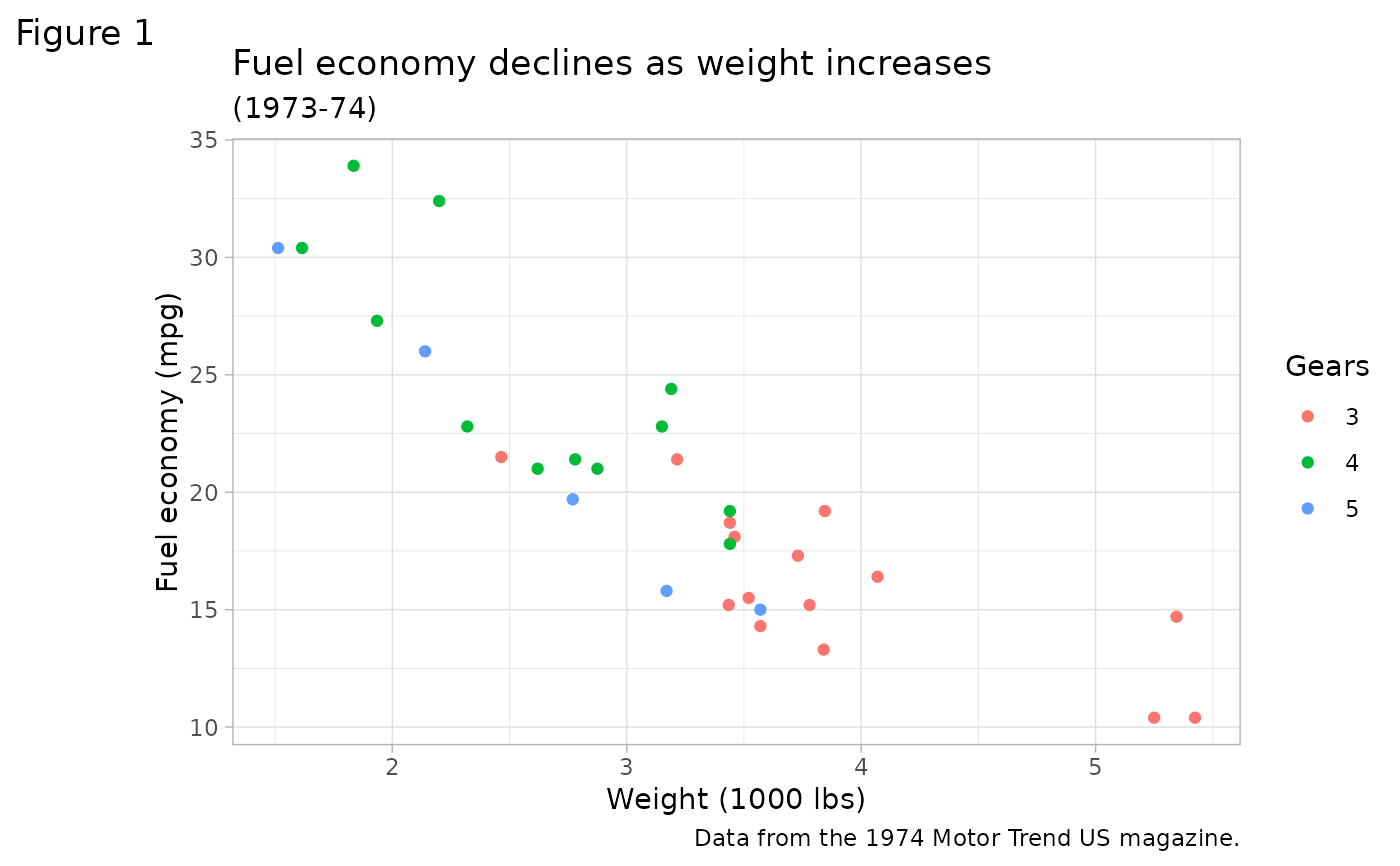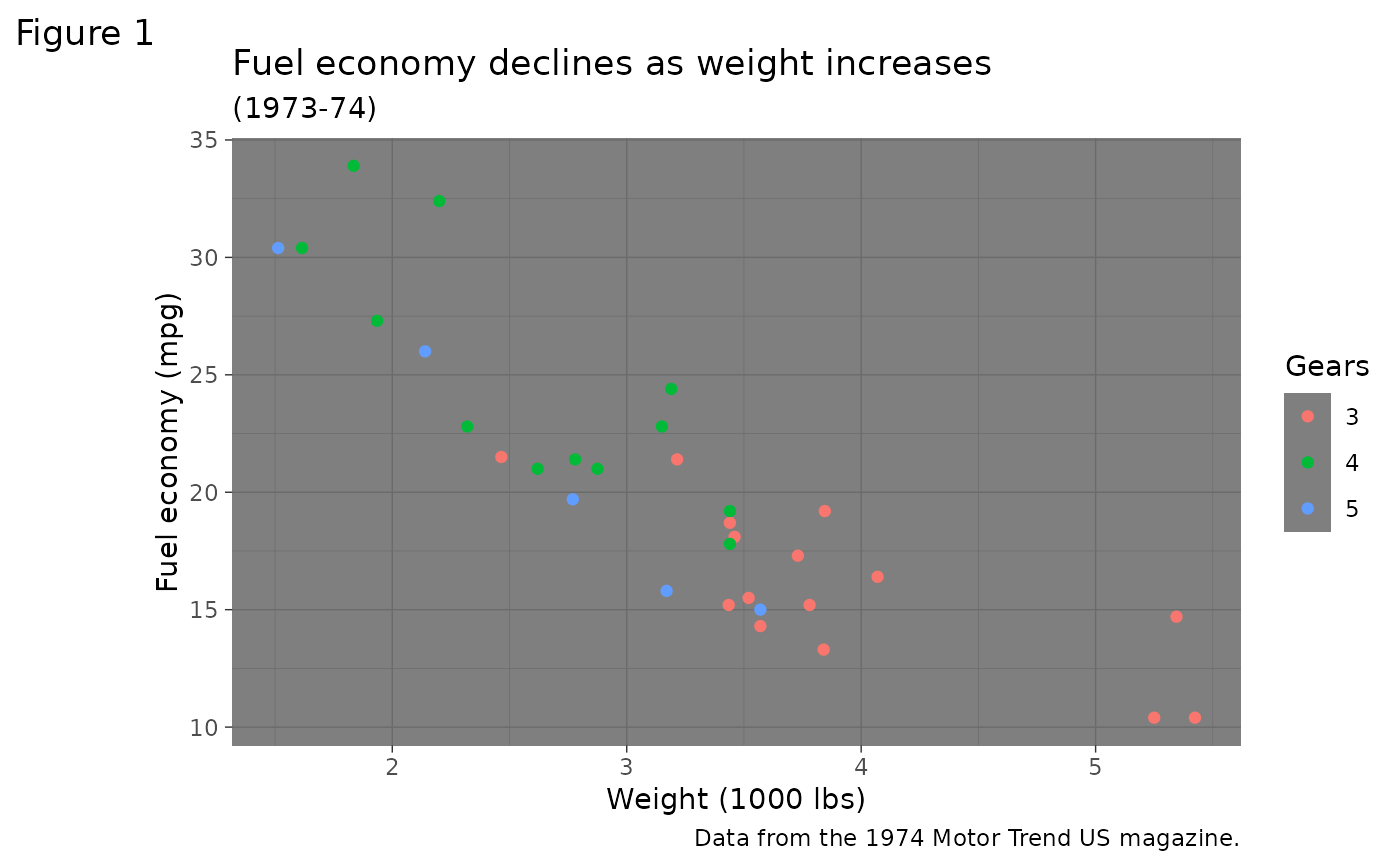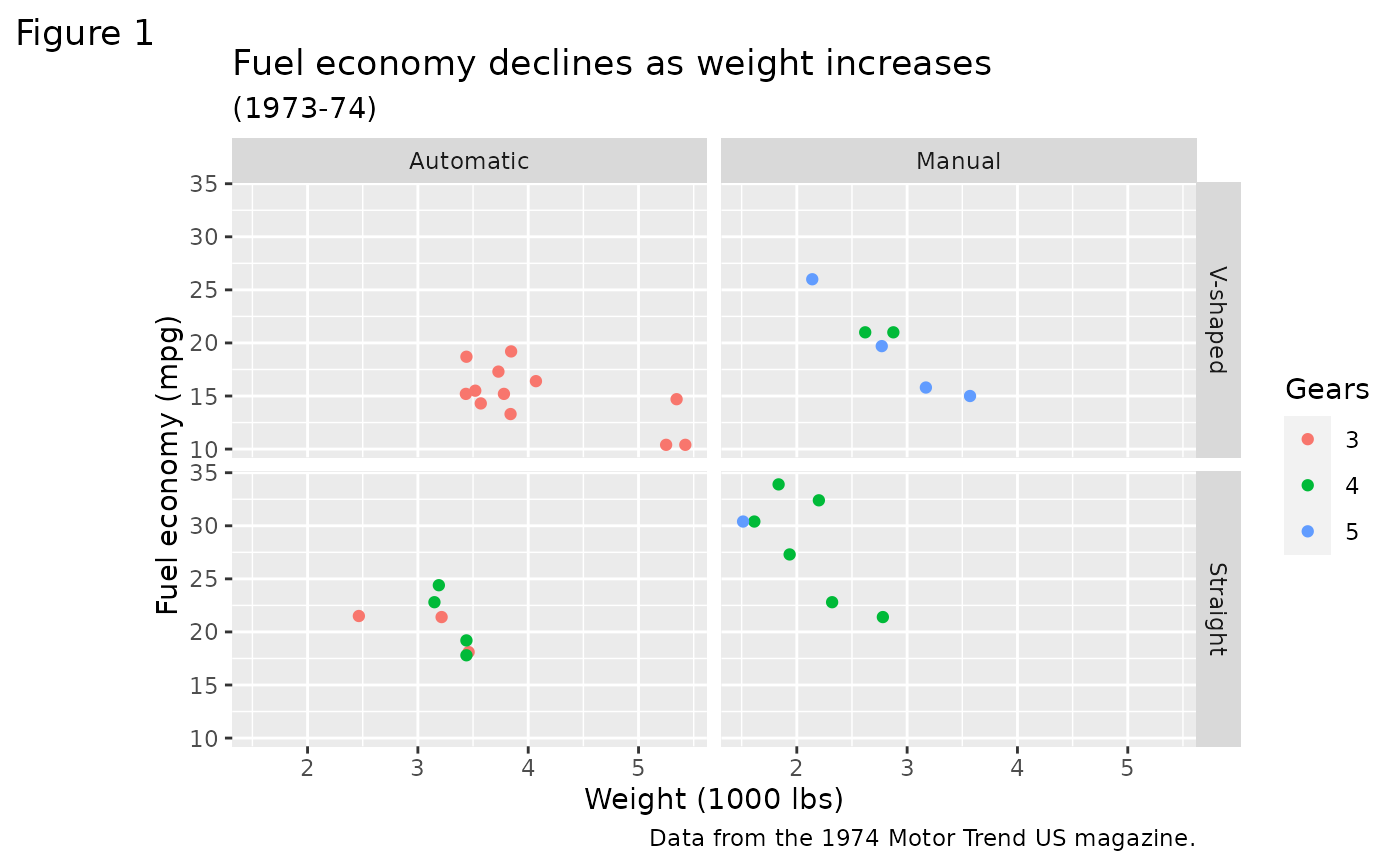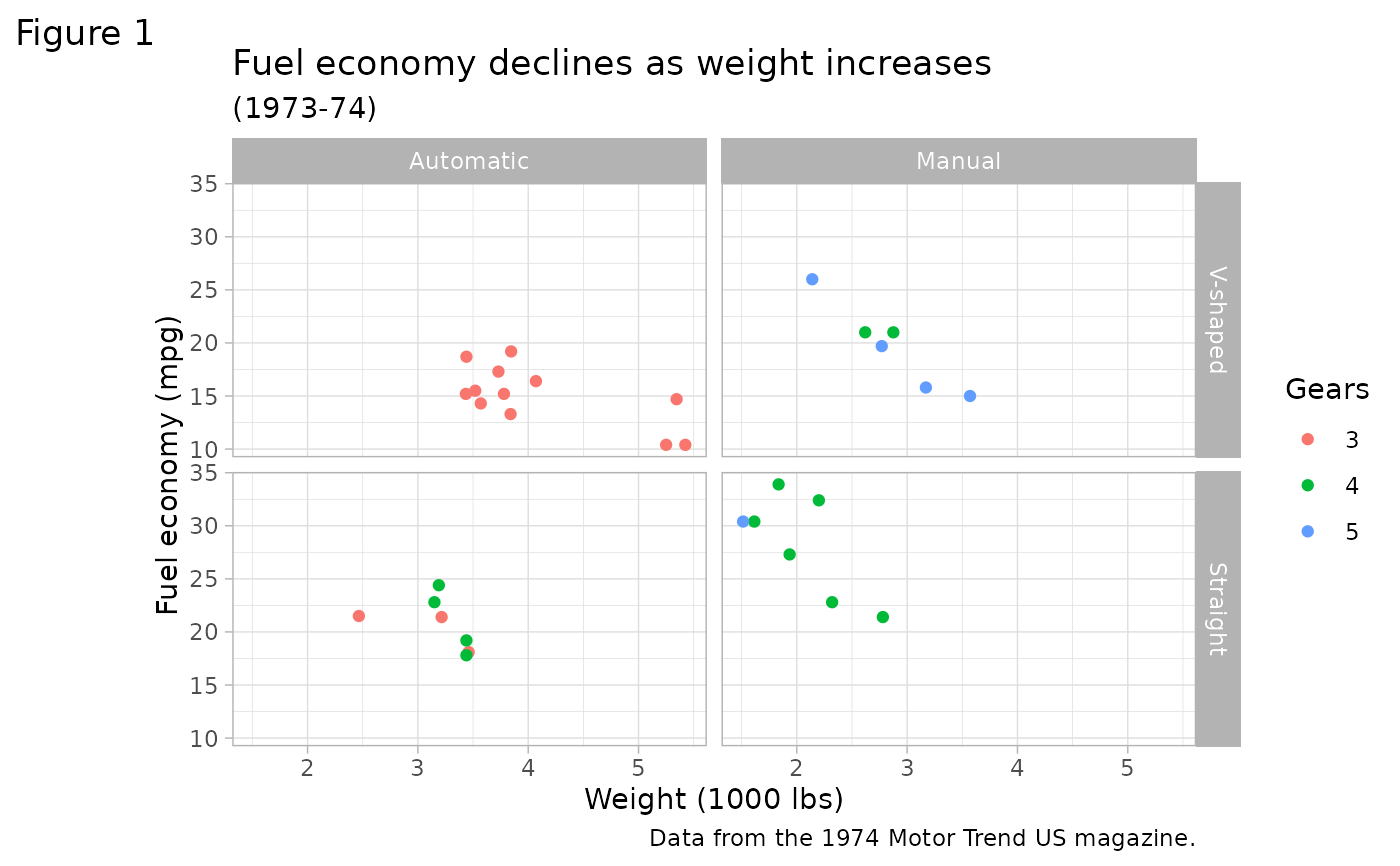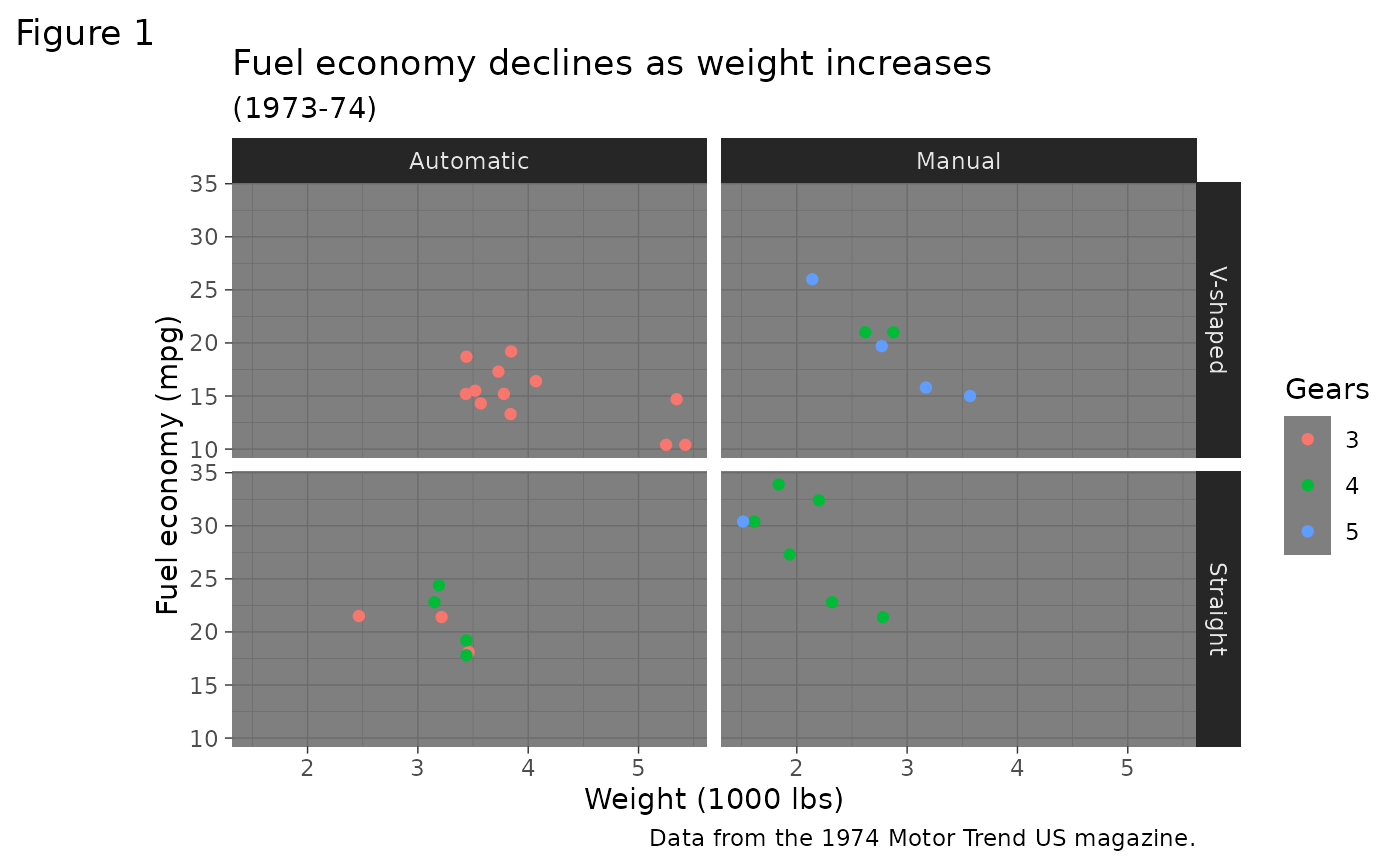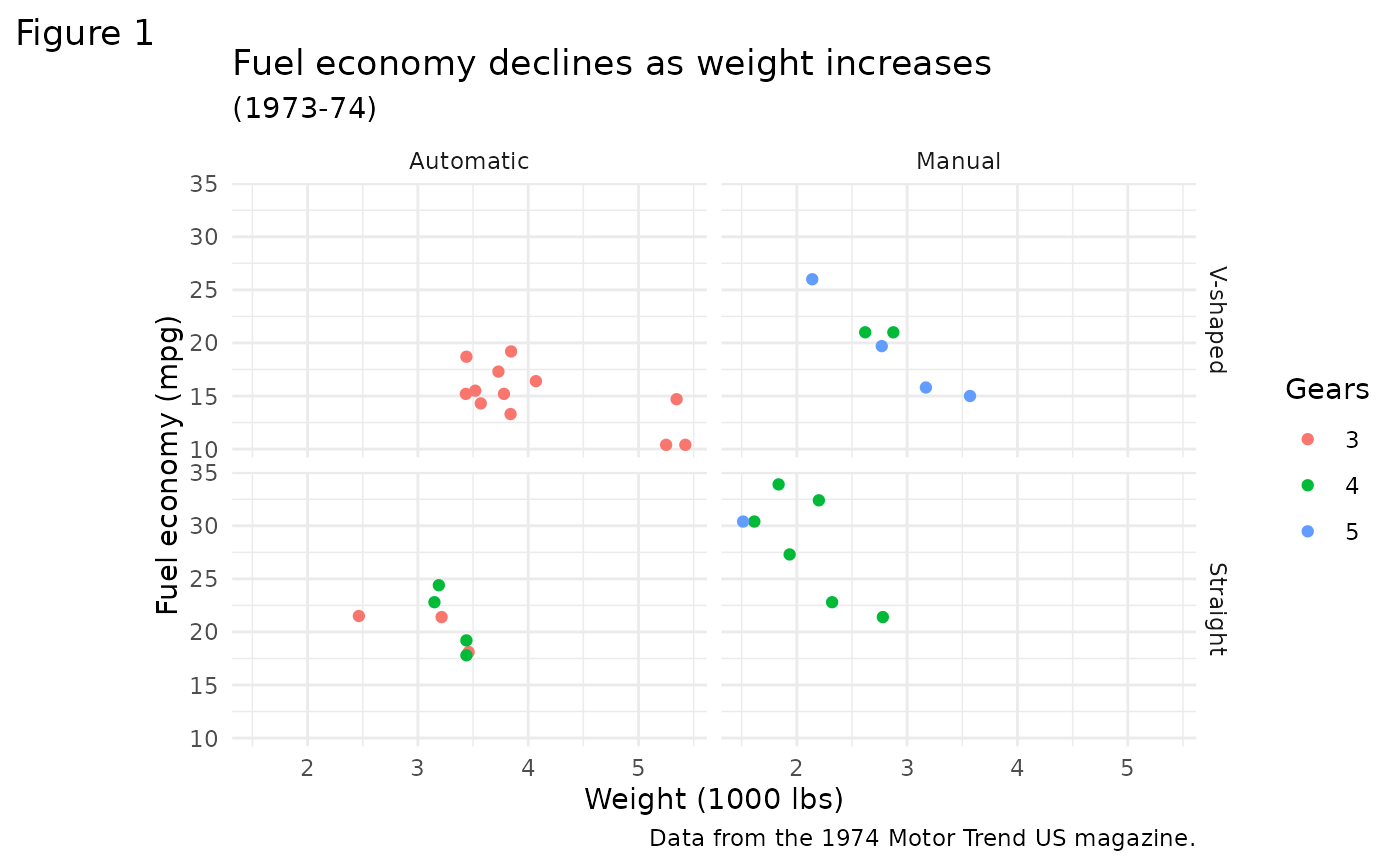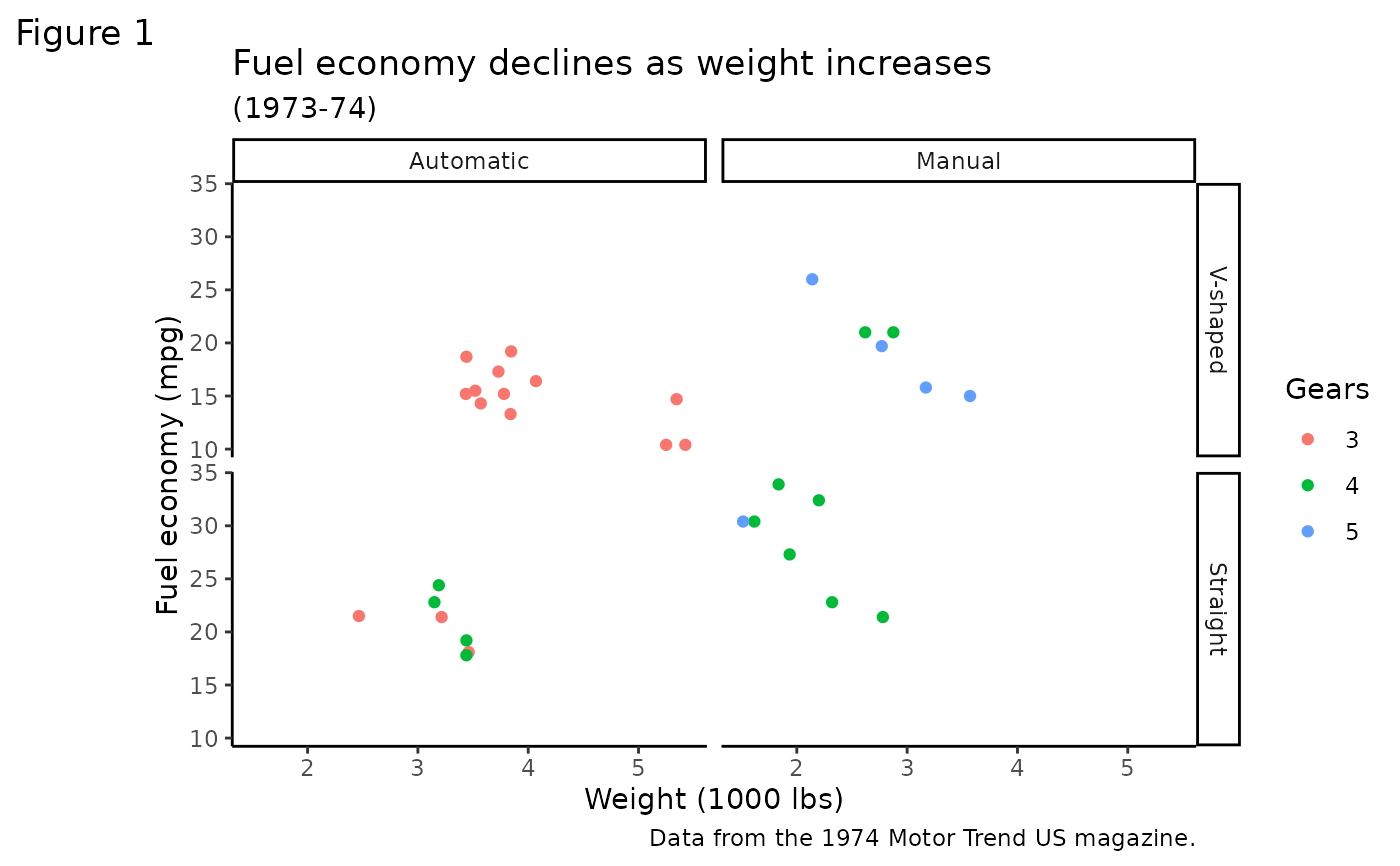These are complete themes which control all non-data display. Use
theme() if you just need to tweak the display of an existing
theme.
theme_grey( base_size = 11, base_family = "", base_line_size = base_size/22, base_rect_size = base_size/22 ) theme_gray( base_size = 11, base_family = "", base_line_size = base_size/22, base_rect_size = base_size/22 ) theme_bw( base_size = 11, base_family = "", base_line_size = base_size/22, base_rect_size = base_size/22 ) theme_linedraw( base_size = 11, base_family = "", base_line_size = base_size/22, base_rect_size = base_size/22 ) theme_light( base_size = 11, base_family = "", base_line_size = base_size/22, base_rect_size = base_size/22 ) theme_dark( base_size = 11, base_family = "", base_line_size = base_size/22, base_rect_size = base_size/22 ) theme_minimal( base_size = 11, base_family = "", base_line_size = base_size/22, base_rect_size = base_size/22 ) theme_classic( base_size = 11, base_family = "", base_line_size = base_size/22, base_rect_size = base_size/22 ) theme_void( base_size = 11, base_family = "", base_line_size = base_size/22, base_rect_size = base_size/22 ) theme_test( base_size = 11, base_family = "", base_line_size = base_size/22, base_rect_size = base_size/22 )
Arguments
| base_size | base font size, given in pts. |
|---|---|
| base_family | base font family |
| base_line_size | base size for line elements |
| base_rect_size | base size for rect elements |
Details
theme_gray()The signature ggplot2 theme with a grey background and white gridlines, designed to put the data forward yet make comparisons easy.
theme_bw()The classic dark-on-light ggplot2 theme. May work better for presentations displayed with a projector.
theme_linedraw()A theme with only black lines of various widths on white backgrounds, reminiscent of a line drawing. Serves a purpose similar to
theme_bw(). Note that this theme has some very thin lines (<< 1 pt) which some journals may refuse.theme_light()A theme similar to
theme_linedraw()but with light grey lines and axes, to direct more attention towards the data.theme_dark()The dark cousin of
theme_light(), with similar line sizes but a dark background. Useful to make thin coloured lines pop out.theme_minimal()A minimalistic theme with no background annotations.
theme_classic()A classic-looking theme, with x and y axis lines and no gridlines.
theme_void()A completely empty theme.
theme_test()A theme for visual unit tests. It should ideally never change except for new features.
Examples
mtcars2 <- within(mtcars, { vs <- factor(vs, labels = c("V-shaped", "Straight")) am <- factor(am, labels = c("Automatic", "Manual")) cyl <- factor(cyl) gear <- factor(gear) }) p1 <- ggplot(mtcars2) + geom_point(aes(x = wt, y = mpg, colour = gear)) + labs( title = "Fuel economy declines as weight increases", subtitle = "(1973-74)", caption = "Data from the 1974 Motor Trend US magazine.", tag = "Figure 1", x = "Weight (1000 lbs)", y = "Fuel economy (mpg)", colour = "Gears" ) p1 + theme_gray() # the defaultp1 + theme_bw()p1 + theme_linedraw()p1 + theme_light()p1 + theme_dark()p1 + theme_minimal()p1 + theme_classic()p1 + theme_void()# Theme examples with panels # \donttest{ p2 <- p1 + facet_grid(vs ~ am) p2 + theme_gray() # the defaultp2 + theme_bw()p2 + theme_linedraw()p2 + theme_light()p2 + theme_dark()p2 + theme_minimal()p2 + theme_classic()p2 + theme_void()# }

